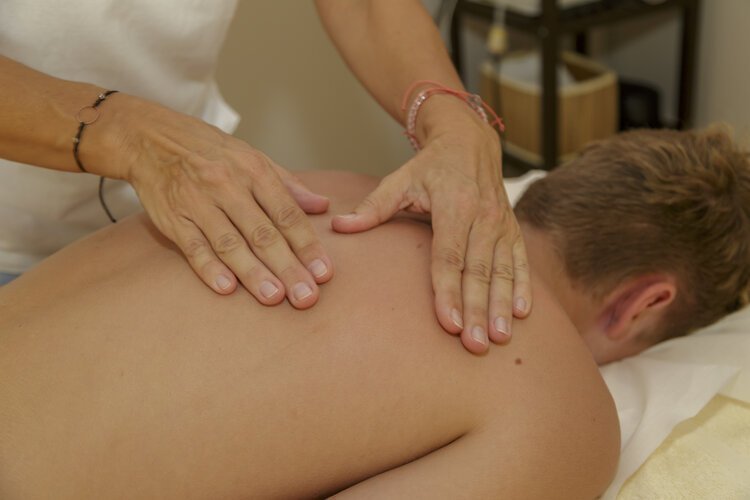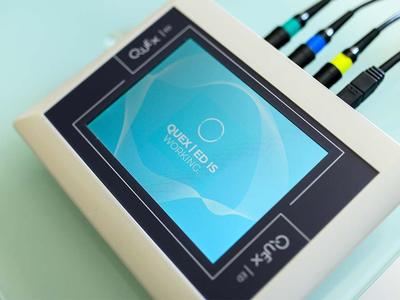Lymphomaniacs
Why Lymphatic Detox Is Good for Your Health
A major part of a lymphatic detox is ‘lymphatic drainage’, which is a therapeutic massage treatment designed to encourage the movement of lymph fluids around the body to help remove waste and toxins from bodily tissues. The lymph system is part of the body’s immune system and helps fight infection, so a lymphatic drainage massage can be very beneficial to people with lymphedema, fibromyalgia, swelling or edema (also known as fluid retention or dropsy), skin disorders, fatigue, insomnia, stress, digestive problems, arthritis and migraines.
A 2015 study of massage techniques concluded that for sufferers of fibromyalgia, lymphatic massage was “superior to connective tissue massage regarding stiffness, depression and quality of life,” (Yuan et al, 2015).
What Is the Lymphatic System?
The lymphatic system is a network of vessels interrelated with lymphoid tissue, which maintains the right environment for every cell in all tissues of the body. The lymphatic system maintains the extracellular fluid needed for optimal tissue function, removing substances that arise due to metabolism or cell death, and optimizing immunity against bacteria, viruses, parasites, and other antigens (Breslin et al, 2011). Or, to put it more simply, the lymphatic system is a very essential and important part of our immune system.
Neomed’s resident physiotherapist Lubka Mlčúchová explains, “Lymphatic nodes produce lymphatic cells and they are the fighters against pathogens. When people are overloaded with the toxicity of any kind, and the lymphatic system is not strong enough to cope, it can result in chronic issues because the lymphatic nodes cannot eliminate toxins out of the body.”
Tell me About the Lymphatic Drainage Massage
Well, manual lymphatic drainage was pioneered by the Danish doctor Emil Vodder and his wife Estrid Vodder in the 1930s for the treatment of chronic sinusitis and other immune disorders. While working on patients with chronic colds, they noticed they all had swollen lymph nodes, so the doctors developed light, rhythmic hand movements to promote lymph movement. Manual lymphatic drainage works on the hypothesis that it encourages the natural drainage of the lymph that carries waste products away from the tissues back toward the heart. While the heart continuously pumps blood through blood vessels, the lymphatic system relies on the movement of smooth muscles to transport the fluid through the lymph vessels.
“When we move, the vessels pump lymph fluid closer to the lymph nodes and this fluid then gets filtered and cleaned. taking the waste to the bloodstream where the toxins are eliminated through the kidneys and pee,” says Lubka. “This is why the lymph system needs to be operating at a good level to fight inflammation and pathogens.”
Health conditions can interrupt the normal flow of lymph, causing lymph fluid to build up in a particular area of the body, often in the arms or legs, where it can cause swelling; a condition called lymphedema. People can develop lymphedema as a result of infections or medical treatments and procedures that involve the removal of lymph nodes, as well as any condition that damages the lymphatic system. Lymphatic massage can reduce this swelling and improve circulation throughout the lymphatic system. “It’s a very gentle massage and very superficial compared to other deep tissue massages,” says Lubka. We begin at the throat, where there are large lymph nodes because we need to first open this gateway because it’s like opening the cleaning system, and I need to stimulate it to create the suction for incoming fluid.”
How Important Is Lymphatic Detox to Overall Health?
The short answer is ‘very’.
Lymphatic vessels are the primary route of communication from peripheral tissues to the immune system, making them an important component of local immunity. Recent studies have shown that lymphatic vessels help shape immune responses in a variety of ways: promoting tolerance to self-antigens, archiving antigen for later presentation and resolving inflammation. Immuno-engineering has also begun to explore therapeutic approaches to utilise or exploit the lymphatic system for immunotherapy.
Recent evidence has further shown that lymphatic growth and expansion, or lymphangiogenesis, occur in several inflammatory conditions including psoriasis, rheumatoid arthritis, inflammatory bowel disease (IBD), atherosclerosis, chronic airway inflammation, transplant rejection, and lymphedema. Lymphangiogenesis has been observed in several chronic respiratory inflammatory conditions (Maisal et al, 2018).
“Commonly, when if lymph starts to stagnate it can lead to swollen ankles, calves, legs and feet. In extreme cases, it can bring on elephantiasis when the lymph vessels are very weak,” says Lubka.
Although lymphatic drainage massages are generally very beneficial for everyone, there are exceptions. People should not have a lymphatic massage if they have congestive heart failure, blood clots, kidney problems, infections, or circulation problems. If a person has any medical conditions, they should talk to a doctor before trying a lymphatic massage.
“As a form of prevention, it’s beneficial to nearly everyone as we lead quite sedentary lives these days with many of us sat behind desks working on computers,” says Lubka.
“It’s also a very relaxing treatment so it’s good for the mind as it allows you to simply switch off for an hour. “But you have to be careful with some chronic infections as there might be a danger of poking the beast and making the infection spread. This is why we have to evaluate each patient individually. This is a very personalised treatment.”
What Else Does a Lymphatic Detox Entail?
“As well as lymphatic massage, at Neomed we have a number of wraps and treatments that help,” says Lubka, “We use a combination of herbal infusion body wraps and microcurrent therapy, which acts as a stimulus to collect toxins and eliminate them.
We also encourage our guests to be active; to walk and do physical activities in order to help the lymph pump, if they are strong enough to do such exercises, of course. “An excellent exercise is trampolining as the movement can help even with varicose veins and heavy leg inflammation.”
Further reading:
On the lymphatic system:
https://www.ncbi.nlm.nih.gov/pmc/articles/PMC6459625/
Fibromyalgia massage study:
https://www.sciencedirect.com/science
Lymphatic vessels and the immune system:
https://www.ncbi.nlm.nih.gov/pmc/articleshttps://www.ncbi.nlm.nih.gov/pmc/







